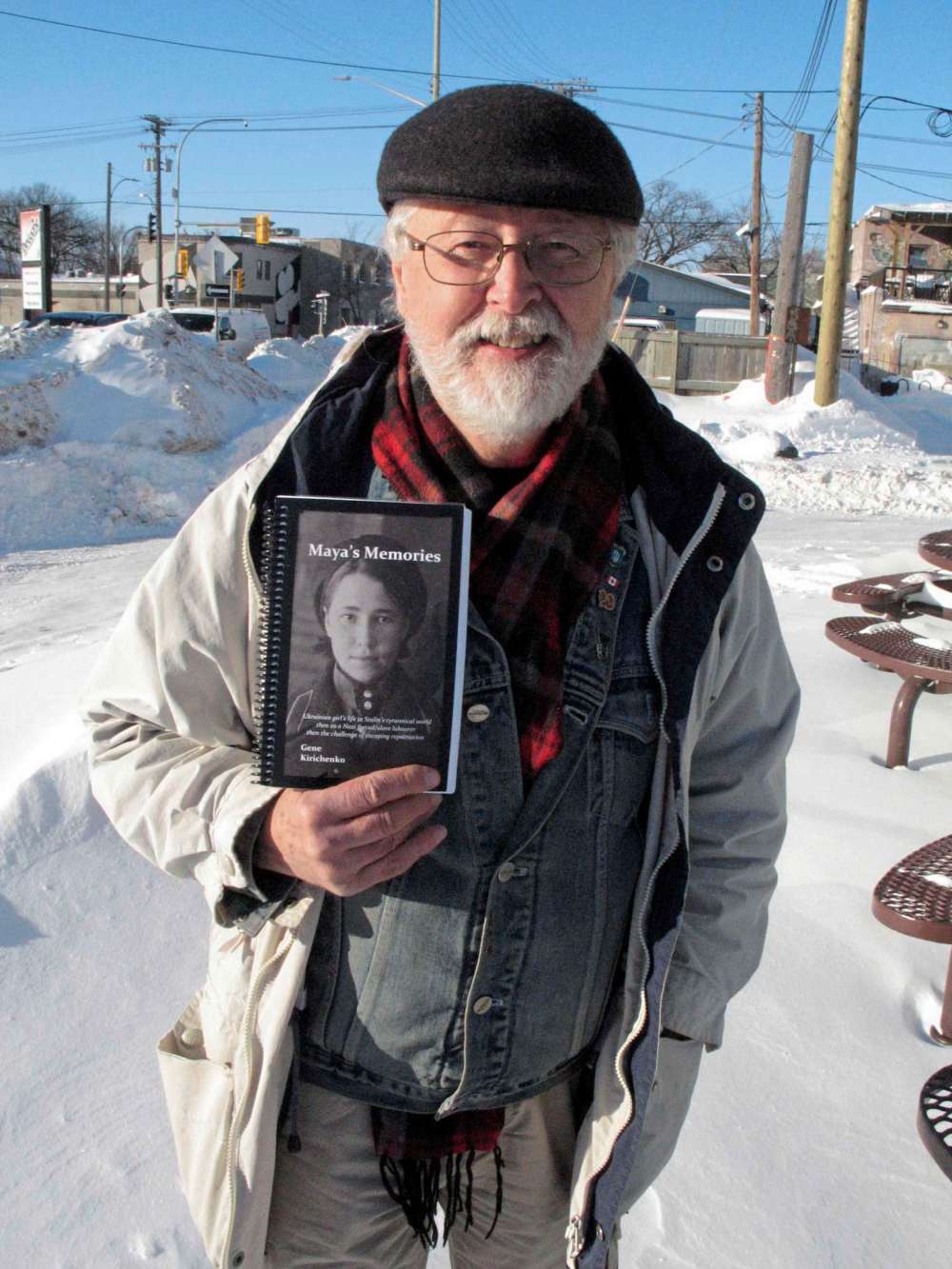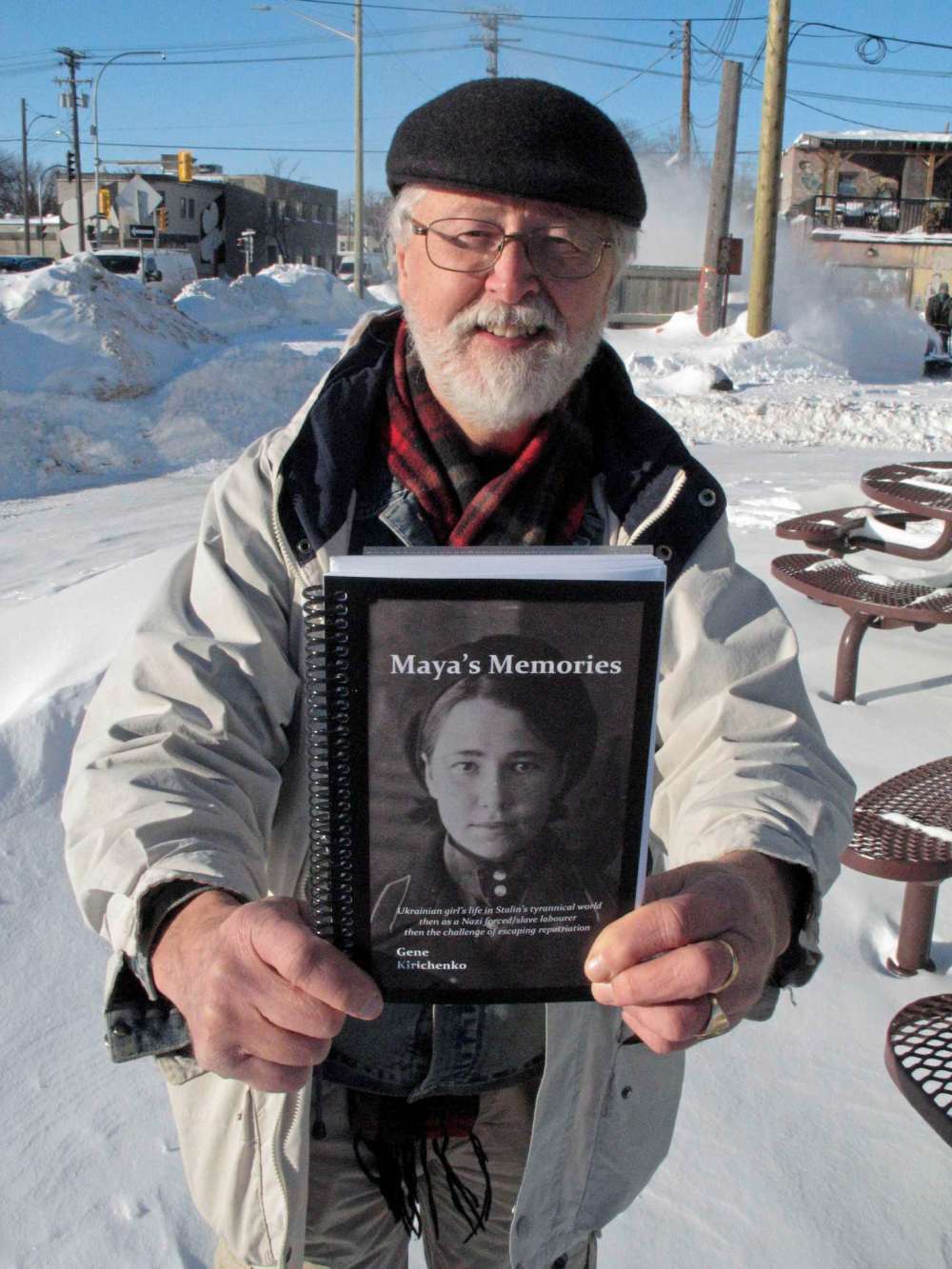Turning the pages of history
Retired teacher releases book about mother’s recollections
Advertisement
Hey there, time traveller!
This article was published 25/01/2022 (1424 days ago), so information in it may no longer be current.
Gene Kirichenko’s new book is a deeply personal journey.
The St. Vital resident has self-published a book called Maya’s Memories, which is based on a collection of memories that his mother, Maya Kirichenko, recalled about her life between the mid-1920s and 1950s.
“The book addresses why I am here in frosty Winnipeg. The book is about my mother’s recall of life under the dictatorial, to be feared, Joseph Stalin. Then, it recalls my mother’s experience after the German Nazis came into Slov’yansk, Ukraine and loaded her and other teens into a boxcar. Then, the girls were taken into Bavaria, Germany to become forced slave labourers,” Kirichenko said.

“I must say that I am here because my mother and father, who the Soviets wanted repatriated, chose Canada to immigrate to. And Winnipeg was the city for them and one-year-old me. And even though arriving with 87 cents and settling in was not easy, Canada — as my father wrote in the margin of Alexander Solzhenitsyn’s book One Day in the Life of Ivan Denisovich — ‘Canada is heaven.’ Fear and absolute control were never experienced as they were in Ukraine SSR.”
Kirichenko is a retired teacher, who taught mathematics at Glenlawn Collegiate for 40 years between 1974 and 2014. He’s still a registered substitute teacher and still gets into the classroom often: “I must say the joy of spending time with teens and sharing knowledge, along with setting a climate for learning, is still with me.”
In fact, he said the only reason he retired from teaching full-time was that it was time to do other things. One of these things was to research and write Maya’s Memories, which involved interviewing his mother for more than three years, where he “took her voice so that the reader is sensing Maya is talking to them.”
One added benefit of this meant the now-retired Kirichenko was able to take his mother for breakfast once a week.
“We’d have a breakfast morning together — she’d talk and I’d ask questions, and it all grew from there,” he said.
The 312-page book begins with short summaries titled Stalin’s World and Hitler’s World, as well as A Parable about Stalin’s Rule. There are 20 chronological chapters, which begin around the time of Maya’s birth. There are visual elements, too, including black-and-white photos, sketches, illustrations, diagrams, and maps.
Maya’s reminiscences come together as she recalls what life was like after immigrating to Canada — a place of cultural change, a new language to learn, and new-found freedom. While the book serves as a historical document in many senses, readers should also be drawn to its warmth and humanity — and, above all — hope. It also serves as a reminder to humankind to not repeat atrocities of the past.

“It was important to me to this book to honour my mother,” Kirichenko said. “It’s also important to let people know about the suffering of my parents and millions of others experienced under Stalin and the Nazis.
“After writing the book I was left with the feeling that Canada is a great country and we should be kind to immigrants. They are here for a reason.”
Email Kirichenko at eugadamez@hotmail.com for more information, or to buy a copy of the book.

Our newsroom depends on a growing audience of readers to power our journalism. If you are not a paid reader, please consider becoming a subscriber.
Our newsroom depends on its audience of readers to power our journalism. Thank you for your support.




